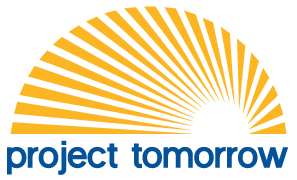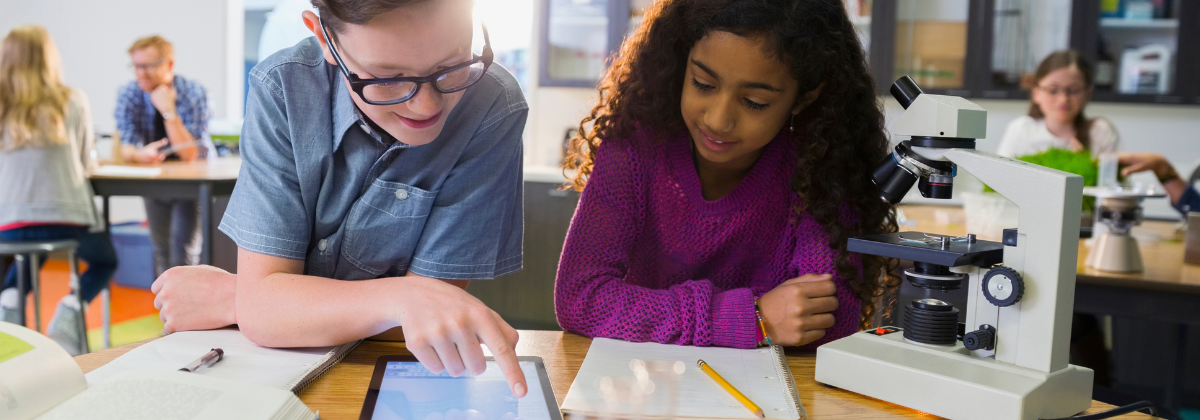For Immediate Release:
October 19, 2021
Download PDF of Press Release
CONTACT:
media@tomorrow.org
608.216.7300
Project Tomorrow, Blackboard and The School Superintendents Association Present New Equity Research During Congressional Briefing
Insights from 50,000 K-12 students, parents and educators show how technology can be used to create more equitable learning experiences for all students; education leaders urged to focus on agency, equity
WASHINGTON (Oct. 20, 2021) – Beyond the obvious changes in school formats caused by the pandemic, there is new awareness about the critical need to address inequities in education. This awareness comes to light in new research presented today during a virtual Congressional Briefing. Project Tomorrow, a national education nonprofit supporting the implementation of research-based learning experiences, Blackboard Inc., a leading global EdTech software and solutions company, and AASA, The School Superintendents Association, shared key findings from the new digital learning report, “Empowering and Engaging Student Voice to Create Equity in Education.”
Key findings from the 2020-21 Speak Up Research Project, shared today with education leaders, teachers, librarians and policymakers, include:
- While two-thirds of students grades 6-12 said the top benefit of virtual learning was learning at their own pace, less than half of school principals saw it as an important benefit.
- Overall, just half of students say they’re engaged. At schools where the majority of the 6-12 grade population are students of color, just 43% agree they are engaged with what they are learning, 8 points lower than schools where the majority of the student population is white (51%).
- Self-directed learning emerged as a critical engagement tool. Surveyed students’ preference for a school culture where self-directed learning is the norm is valued by 55% of high school students. Among students who say that they wish their classes were more interesting at school, 60% identify this learning preference.
- Teachers have also become more comfortable using technology to personalize experiences for students. For example, 37% of teachers this year said they were very comfortable using technology to personalize experiences for students in their class; only 21% of teachers said the same in the 2019-20 school year.
- Additionally, 44% of teachers report that, as a result of remote learning experiences, they now understand how to engage students effectively in learning when that learning modality is online. Email (67%), mobile apps with conversational capabilities (61%), and text messaging (54%) remain the most effective way for high schoolers to communicate with teachers.
View and download an infographic depicting key findings here. Access the full report here.
“This data provides research-based insights that can both clarify the needs of students and help educators see new solutions,” said Dr. Julie A. Evans, Chief Researcher and CEO of Project Tomorrow. “By asking the important questions, challenging the representativeness of anecdotes and myths, and translating the views of students into actionable knowledge, education leaders are potentially better armed to not only address the current challenges in the post-pandemic school environment, but provide a clearer path to improving educational opportunities for all students.”
“The research has revealed how critical a role student agency plays when it comes to engaging learners,” said Christina Fleming, Chief Marketing Officer at Blackboard. “The next steps are clear. A personalized experience, tailored to a student’s individual needs, is how we empower learners to direct their own learning journey.”
“We know that it is more important than ever that every student is well prepared and future-ready for college or workforce success,” said Dr. Daniel A. Domenech, Executive Director of AASA. “To achieve that goal, we need learning experiences that are engaging for students and empower them to be self-directed, independent learners.”
The Speak Up Research Project is a national research initiative and free service to schools and districts. Since fall 2003, Speak Up has helped education leaders include the voices of their stakeholders in annual and long-term planning. edWeb.net hosted today’s briefing.
About Project Tomorrow
Project Tomorrow’s nonprofit mission is to support the effective implementation of research-based learning experiences for students in K-12 schools. The organization’s landmark research is the Speak Up Research Project which annually polls K-12 students, parents, educators and community members about the impact of technology resources on learning experiences both in school and out of school, and represents the largest collection of authentic, unfiltered stakeholder voice on digital learning. Since 2003, almost 6 million K-12 students, parents, teachers, librarians, principals, technology leaders, district administrators and members of the community have shared their views and ideas through the Speak Up Project. Learn more at www.tomorrow.org.
About Blackboard
Blackboard is a leading EdTech company, serving higher education, K-12, business and government clients around the world. We connect a deep understanding of education with the power of technology to continuously push the boundaries of learning. Our mission is to advance learning together with the world’s education community, so that all learners, educators and institutions can realize their goals today and prepare for tomorrow. www.blackboard.com
About AASA
AASA, The School Superintendents Association, founded in 1865, is the professional organization for more than 13,000 educational leaders in the United States and throughout the world. AASA’s mission is to support and develop effective school system leaders who are dedicated to equitable access for all students to the highest quality public education. For more information, visit www.aasa.org.
###

